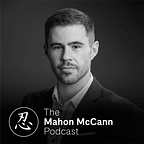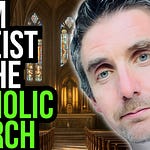Storytime.
In Greek Mythology, in the later stories of Theseus, son of Posideon, slayer of the Minotaur, founder of Athens, he is having an identity crisis of sorts. In many of his later stories, Theseus, a once-great hero, mainly misbehaves with his mate King Pirithous. Pirthous (meaning to run around), was born when Zeus turned into a horse and bucked his Ma, and he was well known for causing trouble.
One day, the mischievous pair decided they would marry the daughters of Zeus because they were both such hot stuff. Theseus chose Helen, who if you know the story of Troy, was the most beautiful woman in the world and a real heartbreaker (except at the time of this story she was only 12 and they kidnapped her. Pretty messed up). King Pirithous chose Persephone, Goddess of Fertility, even though she was already married to Hades, king of the underworld - yipes. Not the best call.
This whole thing was a bone-brained scheme, like your mate tempting you out on the batter looking for women when you know you should be at home in bed. But Theseus thinking he was a good mate, said, 'no bother lad, I'll go to the underworld with you and we get her back,' which turned out to be a terrible move. They left Helen with Theseus Ma and went out on their mission.
Somewhere on the journey, around the outskirts of Tartarus, Theseus got tired. He was older and not as youthful as he was before on his adventures. So he decided to sit down on a rock to rest, but when he did, he felt his limbs change and grow stiff. He tried to get off the rock but could not. He was fixed to the rock now! As he turned to cry out to his friend, he saw that Pirithous, too, was crying out. Around him gathered the terrible band of Furies with snakes in their hair, torches, and long whips in their hands. Faced with these monsters, the hero's courage failed, and they led him away to eternal punishment.
For many months in half-darkness, Theseus sat stuck to the rock in the underworld, fixed, mourning for his lost friend and himself. By pure chance, he was rescued by Heracles, who came to the underworld for his 12th task, capturing the three-headed dog Cerberus. Theseus persuaded Persephone to forgive him for the part he had taken in the rash venture of Pirithous. So Theseus was restored to the upper world, but Pirithous never left the kingdom of the dead. When Heracles tried to free Pirithous, the underworld shook. When Theseus returned, Helen was gone and had run off with some other young fella from Sparta. From that time on, he experienced terrible misfortunes, killing his own son, and eventually, some other new upstart hero threw him off a cliff.
Overcoming the quarter-life Crisis.
‘The Quarter Life Crisis’ is a fairly Millennial concept but not something uncommon for young people to wrestle with, the question of, who am I going to be? I’ve struggled with this for many years and consider myself to be out the other side now and able to offer some useful insights for you too. Life around the mid-to-late twenties, can get very complicated; some people are getting married with kids, others are out on two-day benders, and then you're just sitting there in the middle, eating cereal for dinner. Uncertain times for a burgeoning adult.
When in the underworld, moving from one meaning-making structure to another, the temptation is to fall back into old habits and regress to the last place you felt comfortable and safe, to proverbially sit down on a rock. When in uncertainty you don't know how to act and you are in danger of falling back into old habits to stabilise yourself or just defaulting to copying everybody else. Except this doesn’t solve the problem of where you are going, to find a habitable adult identity.
So, how do you get out of the quarter-life Crisis? And what lies beyond?
If you want to have clarity about how to act now, you need to decide who you will be in the future. The future self sets the normative constraints for how we act in the present. For example, if you want to be healthy in the future, you have to live healthily now. If you want to be courageous in the future, you have to start practising courage now. If I want to be a philosopher, I have to start talking shite, now...
I found out the truth of the future self through hard experience. Being deeply unhappy with who I was in my early twenties and a mile off my ideal. I faced a choice then - Lie, and pretend everything is fine? Keep going the way I was going? Or get really, real? Face facts, that I didn’t really know who I wanted to be anymore and that I had to spend time atoning, trimming down on vices, making tough decisions, facing uncomfortable truths, and hammering away at those bad habits; the equivalent of moral weight lifting because morally, I was a complete shrimp.
For me, a lot of my problems were tied up in the session. Last Christmas, the bad outweighed the good once more, and I decided to cut quit drinking for a year. There's no way to sugar-coat this tough-pill-to-swallow but drinking holds you back. Doing this sober time and drunk time has shown me that drinking gets in the way of just about everything, relationships, productivity, and self-respect. Drinking is fun but comes at a cost.
The session became a familiar routine, an anchor in the chaos and uncertainty of life, beyond complicated families and academic pressures, there were friends, stories, status, rituals, weekly benders to look forward to, and hangovers to recover from, and then more sessions to get excited about all over again. But that is why quitting drinking, or any familiar routine, is so hard - It's not just not drinking the juice that makes your head explode; you genuinely have to become a different person. As Epictetus said, "It isn't possible to change your behavior and still be the same person you were before."
Sacrifice is the essence of personal development. You can't have your cake and eat it too. We are limited beings, so for something to live, something else must die. As you get older, into your late-twenties, the early thirties, the landscape changes, people get into relationships, commit to careers, move on, values change, and we come face to face with the future and the question for ourselves, who am I going to be?
Getting over the quarter-life Crisis involves sacrificing the behaviours that keep you tied to who you were. For you, the sacrifice might be something different, but the aim is the same. You need to:
Build a vision for who you want to be that you love and find motivating.
Identify and remove the bad habits that keep you from living in-accord with your ideal.
And cultivate the good habits that will get you there; the right path.
It involves sitting down and wrestling with who you want to be, writing, reading, and reflecting. Finding your values and then breaking those abstract values into actionable routines and practices you can implement that will eventually become integrated into new habits.
This seems so simple? Why doesn't everyone just do this?
In reality, it is not, and our culture offers tons of distractions and addictions but little to no real guidance on how to undertake this project. The modern marketplace is a comfortable rock making factory; social media, drugs, alcohol, movies, and endless streams of content, all threatening to keep you 'stuck on the rock' in the underworld. Using pleasure and comforting patterns of behaviour to keep you from cultivating your character. But the difference between being a loser and a winner can be sacrificing a couple of bad habits. There is no alternative to this process, and no one can do it for you.
With the virtue of time, I realised that drinking was holding me back and keeping me comfortable in situations where I shouldn't have been comfortable, keeping me in physical and mental places I should have left, and repeating the same patterns of self-destructive behaviours, I should have left behind long ago. To be the person you want to be, you have to sacrifice the behaviours, the person, who you were. This is a harsh and brutal process, murderous really; you have to become a beast to avoid getting stuck on that rock in the underworld, forever.












